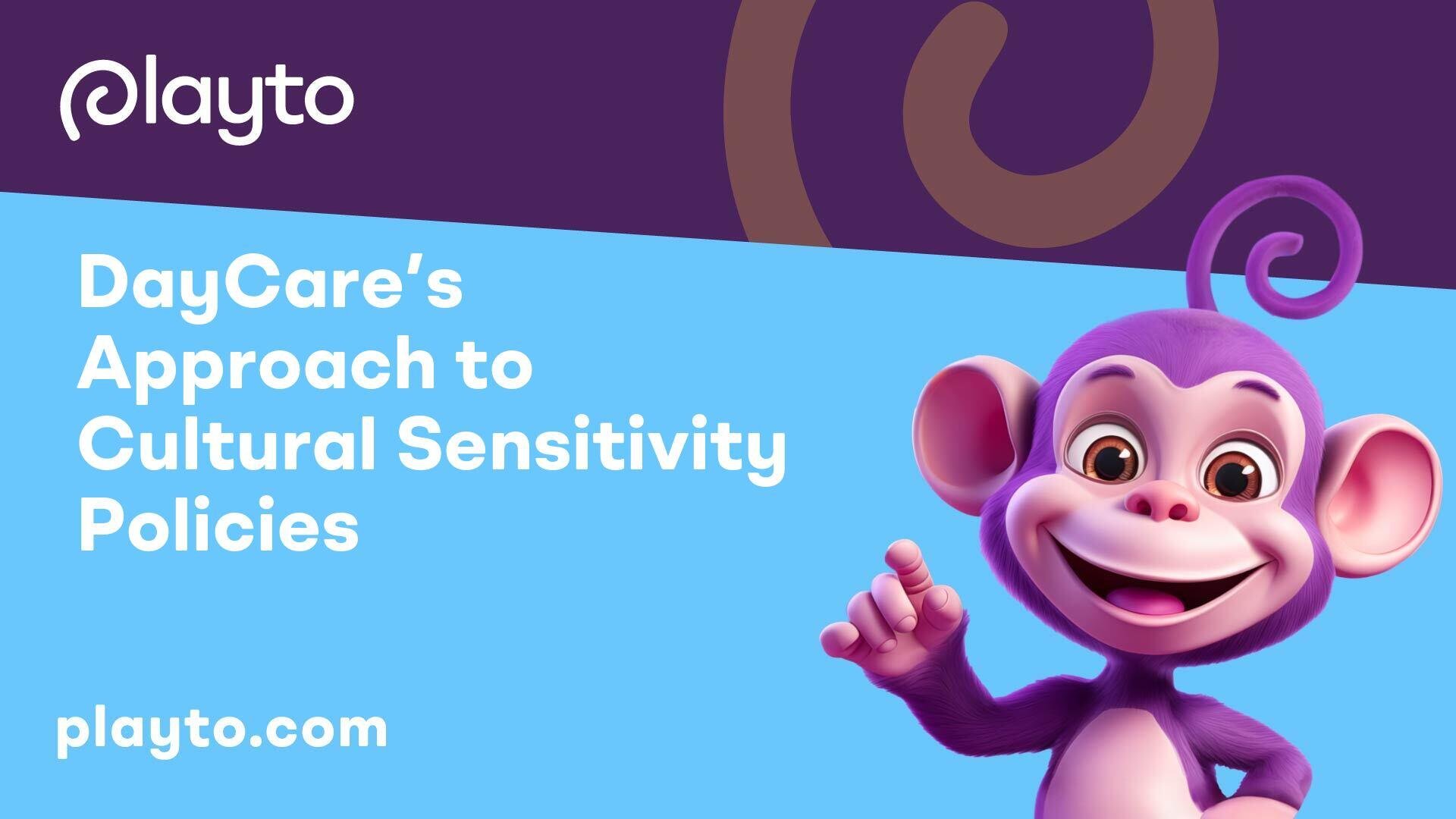Understanding the Role of Culture in Daycare
In today's diverse society, it is becoming increasingly essential for daycare providers to implement cultural sensitivity policies that acknowledge and respect the various cultural backgrounds of children and their families. These policies not only enhance the childcare experience but also promote inclusivity and understanding in early educational settings.
Defining Cultural Sensitivity in Daycare
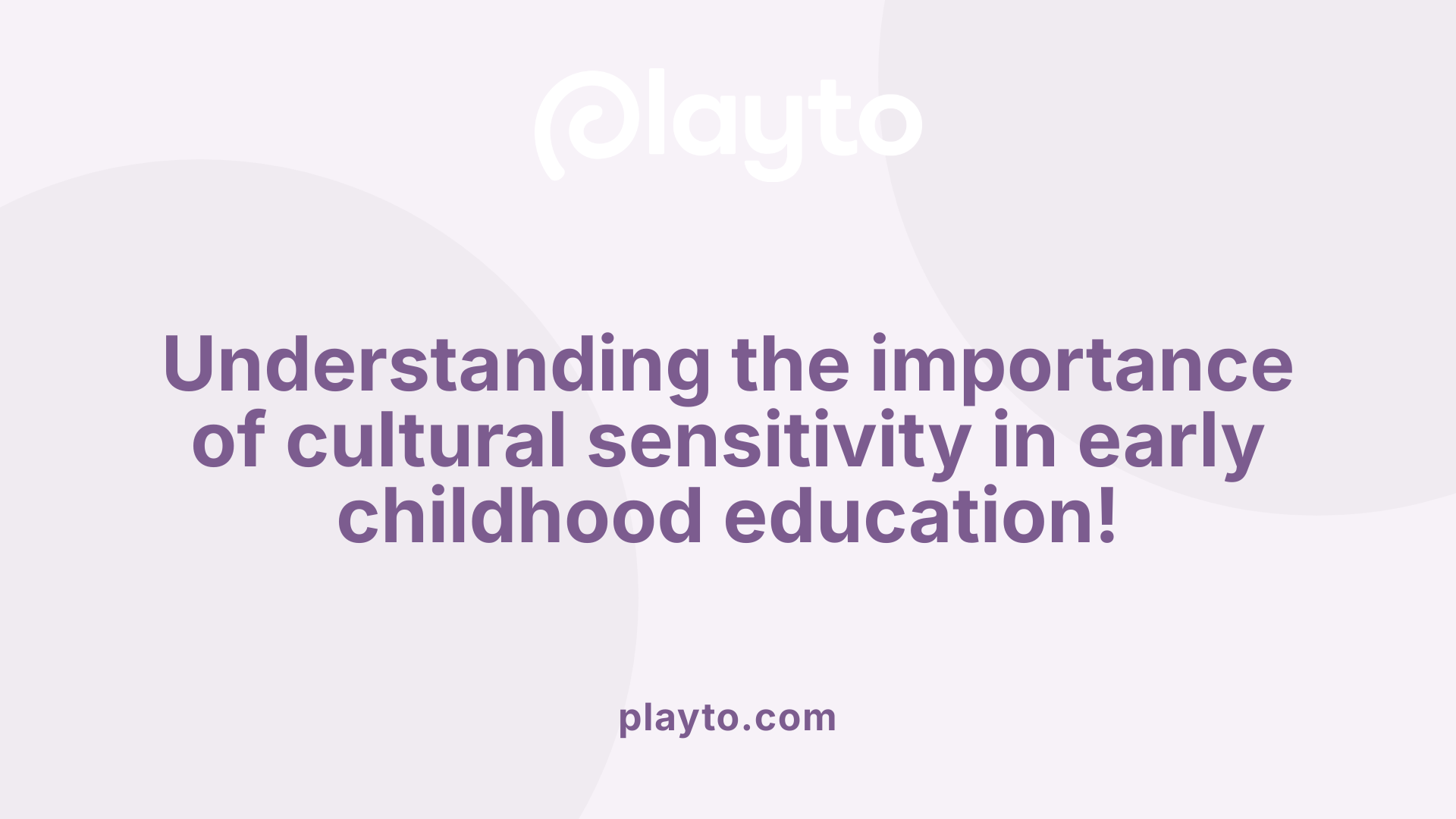
What does it mean to have a culturally sensitive approach in childcare?
A culturally sensitive approach in childcare involves recognizing, valuing, and integrating the diverse cultural backgrounds of children and their families into the educational setting. This sensitivity influences how educators engage with children, fostering trust and security by respecting the cultural foundations that children bring from home.
Culturally sensitive classrooms feature diverse staff, ensuring representation among caregivers which enriches the learning environment. Educators can enhance their effectiveness by incorporating a diverse curriculum that reflects various cultures. This inclusive approach not only enriches the educational experience but also promotes respect and understanding among children.
Fostering an Inclusive Environment
Encouraging family involvement is crucial. Culturally sensitive practices include inviting families to share their traditions and experiences, integrating those insights into classroom activities. Educators can create a welcoming atmosphere that appreciates every child's culture, using tools such as diverse literature and multicultural materials to reflect and celebrate differences.
Importance of Empathy and Understanding
Additionally, the foundation of this approach lies in empathy and understanding. Educators embody cultural competence through active listening, reflecting on their own biases, and openly engaging with cultural differences. This active engagement helps in building relationships with families and supports children's emotional well-being, academic success, and appreciation for diversity.
Through these strategies, children learn the value of compassion and empathy from an early age, setting the stage for a more inclusive and understanding society.
Practical Interventions for Cultural Responsiveness
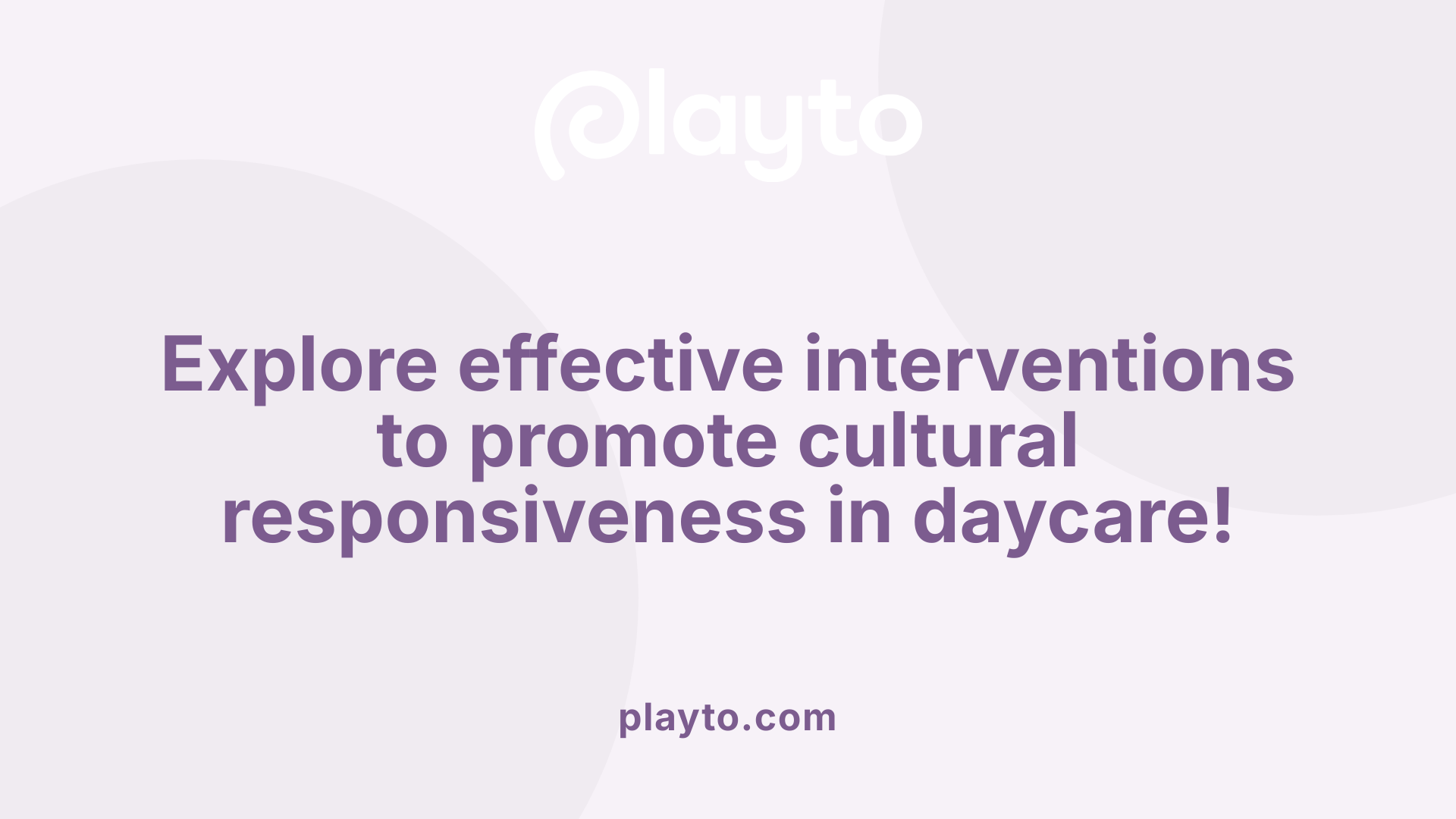
What are examples of culturally sensitive interventions in early childhood education?
Culturally sensitive interventions in early childhood education are essential for fostering inclusive environments. Here are some effective examples:
Diverse Literature and Resources: Educators can integrate books and materials that showcase a variety of cultures, languages, and perspectives. This not only broadens children's understanding of diversity but also allows them to see their own identities reflected in their learning materials.
Language Supports: Providing language supports is crucial. This may include employing professional interpreters to bridge communication gaps with non-English speaking families. Additionally, offering translated materials ensures parents and children feel included and valued within the daycare community.
Community Involvement: Actively involving families from different cultural backgrounds in curriculum development is an impactful strategy. By engaging parents in discussions about their cultural practices and preferences, educators can create a curriculum that resonates with the community, thus fostering a sense of belonging.
These interventions, among others, are pivotal for nurturing culturally responsive care in early childhood settings. They not only respect and honor diverse backgrounds but also contribute significantly to children's emotional and cognitive development.
Integrating Cultural Competence in Daycare Settings
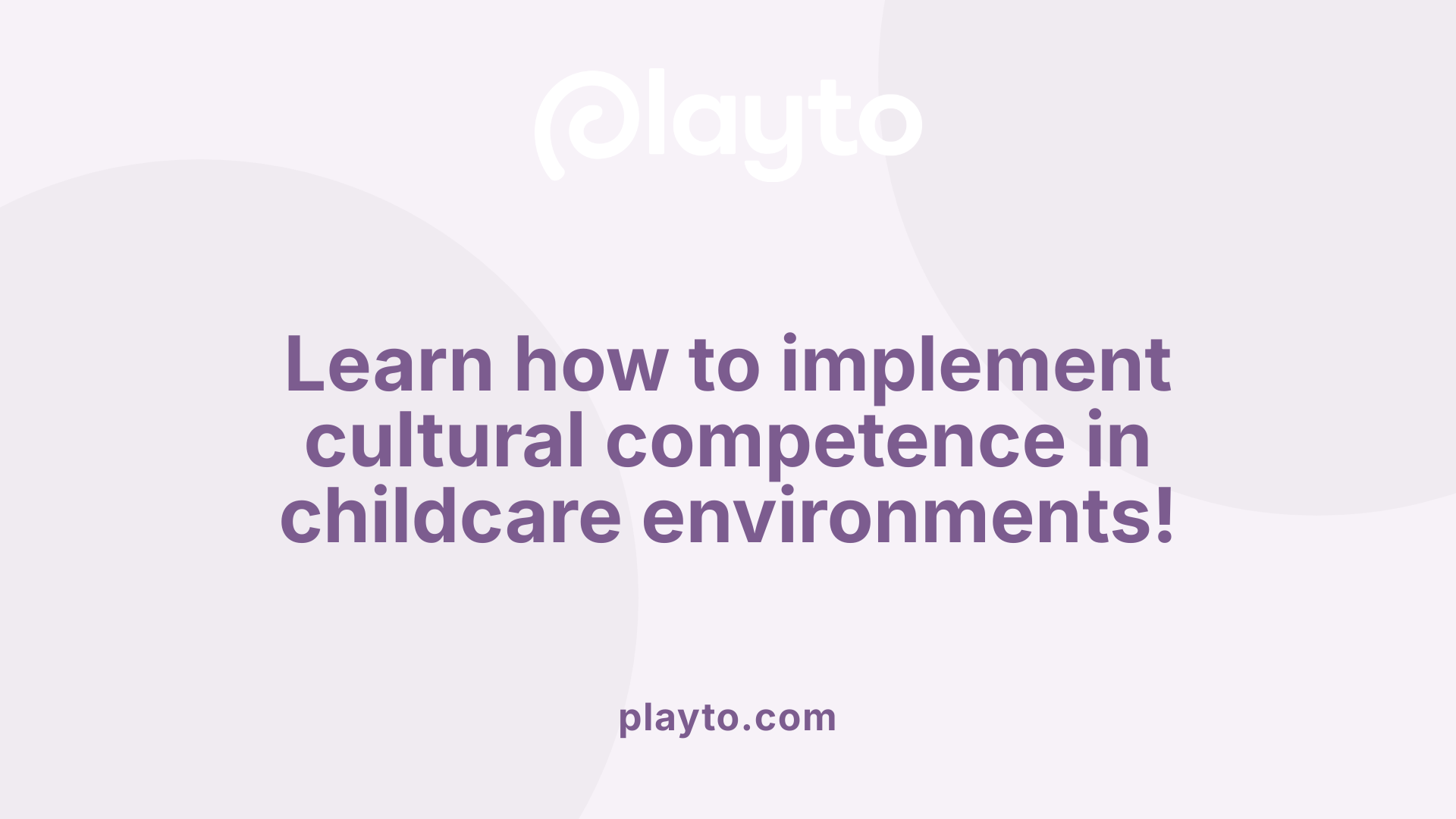
How can cultural competence be implemented in childcare settings?
To effectively implement cultural competence in childcare settings, providers should begin by integrating diverse literature and resources. This includes selecting stories and materials that showcase characters and themes from various cultural backgrounds, allowing children to see themselves reflected in the curriculum.
Celebrating cultural holidays and traditions through hands-on activities enhances children's engagement and understanding of different customs. This approach creates opportunities for children to learn respect and appreciation for varying cultural practices.
Creating a culturally responsive environment involves displaying multicultural artwork and using inclusive language throughout the daycare space. Such visual diversity fosters a sense of belonging and acceptance among all children.
Moreover, inviting guest speakers from different cultural backgrounds can enrich learning experiences. These authentic interactions encourage open dialogue and help children develop relationships with peers from various ethnicities and cultures.
Collaborating with families is also essential for promoting cultural awareness. Daycare providers should support home languages and cultural practices, which strengthens connections and nurtures a child's identity within the care setting. Effective communication about cultural expectations with families is vital for fostering an inclusive atmosphere.
Through these strategies, daycare providers can cultivate an environment that not only respects but celebrates cultural differences, enriching the overall learning experience for every child.
Fostering Cultural Awareness through Curriculum
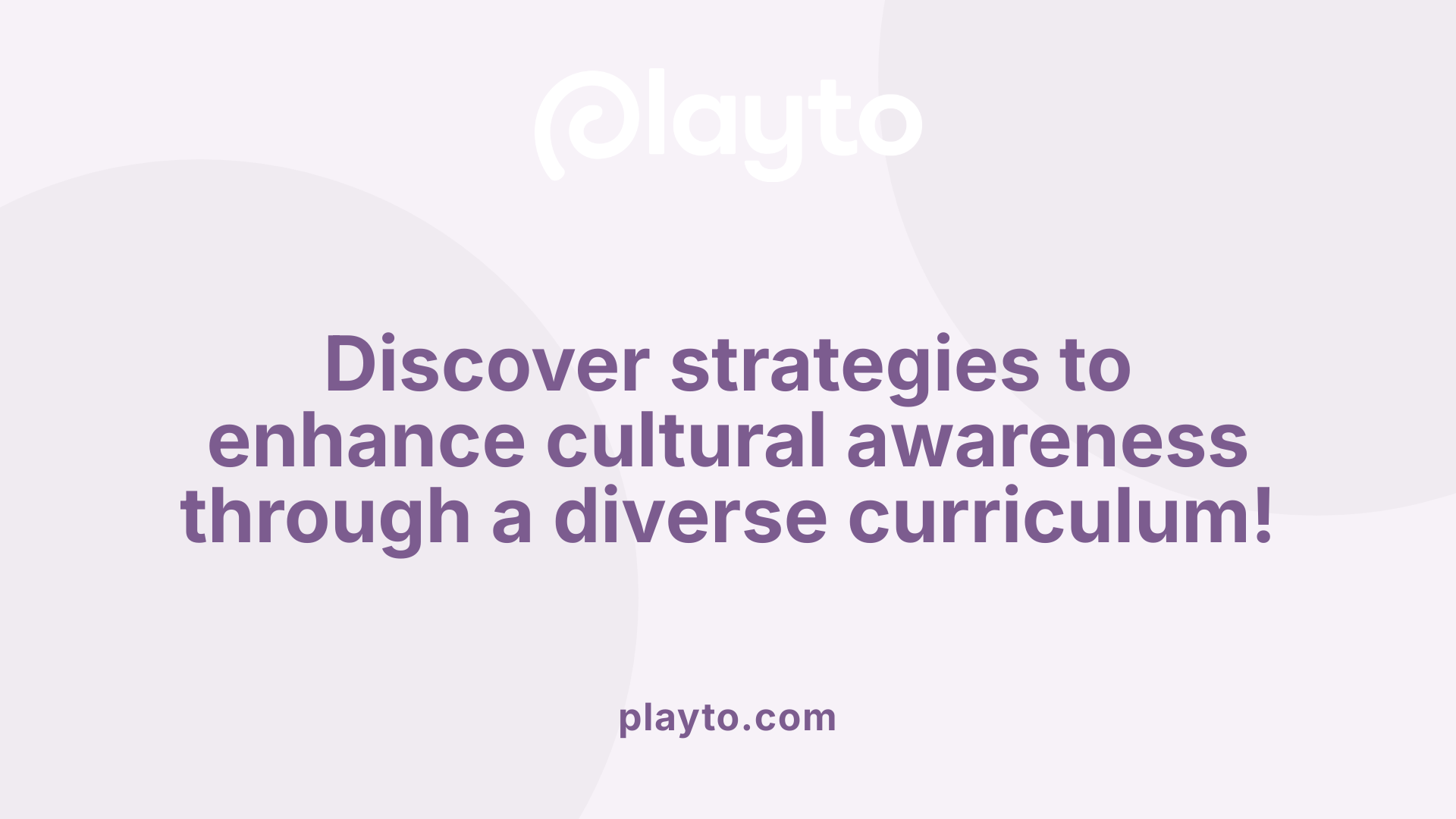
Diverse Curriculum
A diverse curriculum is fundamental in daycare settings to promote cultural awareness among children. It involves using materials and activities that reflect various cultures, allowing children to see themselves and learn about others. Incorporating stories, cultural presentations, and art can significantly enhance children's understanding and appreciation of diversity.
Teacher Training
Ongoing teacher training in cultural sensitivity is crucial. Educators should engage in professional development sessions focusing on recognizing personal biases, learning about different cultures, and adopting inclusive practices. Training programs like 'Cultures in the Classroom' equip providers with skills to nurture acceptance and respect for diversity within their classrooms.
Cultural Inclusion
Creating an inclusive environment goes beyond curriculum; it also requires integrating families into the education process. By including families' cultural backgrounds in discussions and activities, daycare providers can create a supportive atmosphere that celebrates cultural identities. This collaboration fosters a sense of belonging, helping children feel valued and respected.
| Aspect | Importance | Practical Applications |
|---|---|---|
| Diverse Curriculum | Enhances understanding and appreciation of cultures | Multicultural books, art, and activities |
| Teacher Training | Builds awareness and reduces bias among educators | Workshops and professional development |
| Cultural Inclusion | Fosters a sense of belonging and respect | Family engagement activities |
The Impact of Cultural Sensitivity on Child Development
How Does Culture Influence Child Development?
Culture plays a vital role in shaping child development by impacting the environment in which children grow, learn, and interact. Infants and toddlers absorb cultural norms and practices primarily from their families. Thus, daycare providers that prioritize cultural sensitivity can significantly enhance children's development by acknowledging these influences.
What Is the Role of Cultural Sensitivity in Social-Emotional Growth?
Culturally sensitive care encourages daycare providers to honor children's home cultures. This practice promotes a sense of belonging and security, crucial for social-emotional growth. Children learn to respect and appreciate diverse backgrounds, fostering empathy that is foundational for positive social interactions.
How Does Cultural Competence Affect Relationships?
A strong cultural competence among educators leads to improved communication and understanding with families. This collaboration not only strengthens relationships but also reflects positively on children's care experiences. When children feel valued for their unique cultural identities, it enhances their self-esteem and promotes better social-emotional skills.
| Cultural Aspect | Importance in Development | Effects on Children |
|---|---|---|
| Family Background | Influences children's behavior and communication styles | Enhances confidence and belonging |
| Culturally Inclusive Environment | Supports learning about differences and similarities | Fosters empathy and respect for diversity |
| Engagement with Families | Encourages shared values and beliefs | Strengthens emotional security and well-being |
By fostering an inclusive environment, educators help prepare children for a multicultural society, laying the groundwork for lifelong skills in acceptance and understanding.
Policy Framework for Cultural Sensitivity in Daycares
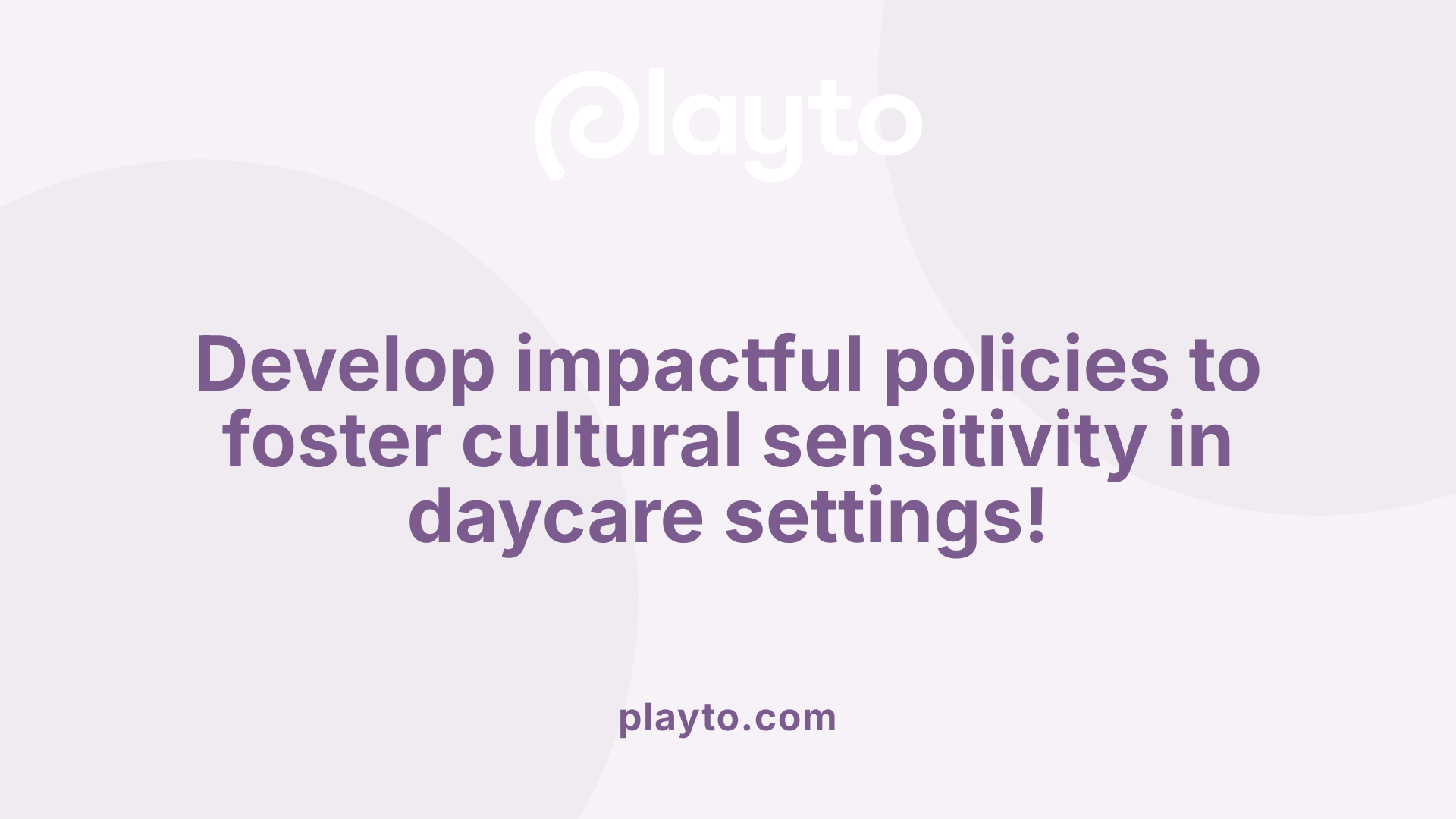
Policy Development
To create a culturally sensitive environment in daycare settings, the development of comprehensive policies is essential. These policies should prioritize cultural competence, reflecting the needs and values of diverse families. By integrating guidelines focused on awareness, understanding, and respect for various cultures, daycares can forge strong, trusting relationships with families. Specific initiatives such as culturally relevant training sessions for educators can be included, ensuring staff is equipped with the necessary skills to engage with all children effectively.
Community Engagement
Engaging with the community is a cornerstone of fostering cultural sensitivity within daycare programs. Daycares should actively reach out to families to understand their cultural backgrounds and involve them in program planning. By inviting parents and community members to participate in activities, share their stories, and celebrate cultural traditions, a stronger connection between the daycare and the community is formed. This not only enhances children's learning experiences but also instills a sense of belonging and pride in their heritage.
Anti-bias Practices
Implementing anti-bias practices is crucial for ensuring that children feel valued and respected, regardless of their backgrounds. Educators must continuously reflect on their biases, employing inclusive curricula that celebrate and accurately represent diverse cultures. Workshops focused on identifying and combating stereotypes can equip staff with tools to foster an accepting environment. Ultimately, children benefit from exposure to diverse perspectives, preparing them for the multicultural realities of today’s society.
Family and Community as Partners in Cultural Sensitivity
In conclusion, cultural sensitivity in daycare is not simply about addressing differences but about creating a nurturing, inclusive environment where every child and family feels valued and respected. By engaging families and communities, daycare providers can create robust policies that are responsive to the cultural needs of those they serve, setting a firm foundation for nurturing well-rounded, empathetic individuals.
References
- Cultural Sensitivity Training for Daycare Providers
- Culturally Sensitive Classrooms - post - ChildCareEd
- Culturally Responsive Care
- Cultural Competency in Early Care and Education Classrooms
- Essential Connections: Ten Keys to Culturally Sensitive Child Care
- Cultural Sensitivity - post - ChildCareEd
- How to Promote Diversity in Child Care - Vanco
- The Crucial Role of Cultural Diversity in Early Childhood Education
- How to Build a Multicultural Daycare - Honest Buck Accounting
- Culture: policy in early childhood development
